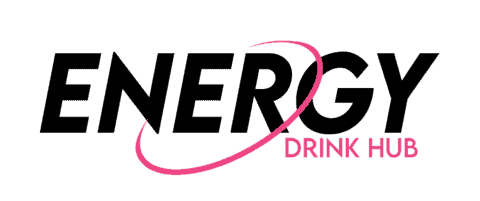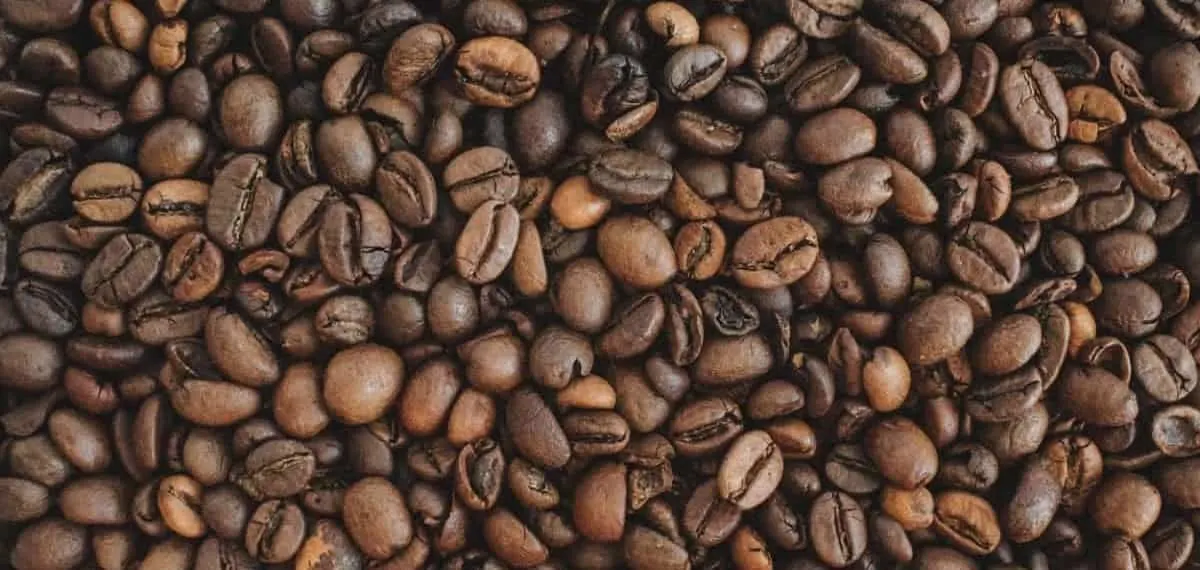
An energy drink gets most of its ‘energy boosting’ qualities from an ingredient called ‘Caffeine’. Energy drinks are also known to be one of the most popular dietary supplements for teens and young adults in America.
To answer the question: Caffeine is one of the most important ingredients in an energy drink, usually around 70-240mg per 16fl oz. serving. There are also products called ‘energy shots’ which are smaller versions that contain 113-200mg of caffeine.
There are a ton of benefits caffeine can offer. However, some brands would exceed the said amounts for their drinks which would fit the liking of people with higher caffeine tolerance.
Caffeine can be sourced from many different ingredients to offer more benefits other than boosting your energy levels. All of those mentioned will be explained throughout this article. With that, I advise you continue reading to learn more.
Let’s jump right into it.
Page Contents
Where Does Caffeine Come From?
It’s said that caffeine is sourced naturally from some plants such as cocoa beans, kola nuts, tea leaves, and cocoa beans. On top of these are guarana seeds, yerba maté, guayusa, and yaupon holly.
Though I’ve mentioned many, I’ll focus on the most common sources of caffeine: Guarana seeds and tea leaves.
Guarana Seeds
Guarana is widely used as a caffeine source in energy drinks. It also has theophylline and theobromine which are other stimulants related to caffeine. On top of this, it offers tannins, saponins, and catechins which are antioxidants as well.
This ingredient has the highest caffeine content in plants since it’s 3.6-5.8% by weight. To compare, coffee offers less since it’s only 2%. To add up, 50-75mg from Guarana can give you a ton of health benefits and there’s no instilled maximum amount you can take.
With what was mentioned above, before consuming this ingredient I suggest you consult a doctor first to clarify what your body needs.
Tea Leaves
Tea leaves are another caffeine-induced ingredient. It naturally comes from a tea plant called Camellia sinensis.
The caffeine content in tea leaves is 3.5%, which is close to the amount in Guarana seeds. In order to extract the caffeine from tea leaves, you would need to brew it.
Whenever caffeine is brewed in hotter water, more of its caffeine will come out. On the other hand, when cold, little will seep out of the ingredient. It’s said that exceeding the 3-4 cups or 710-950ml of tea may lead to negative effects, so it’s best to stay under it.
One example of an energy drink with both of the ingredients mentioned is Guru Energy Drink, which has organic guarana seed extract and organic tea leaf extract.
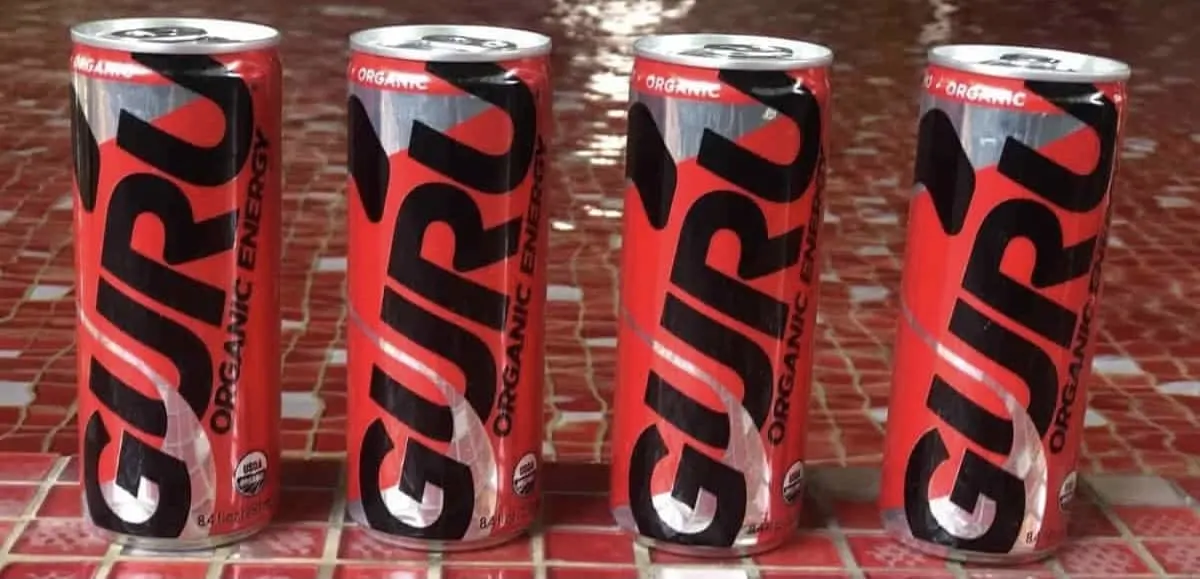
If you want to know more about Guru Energy Drink, check this article concerning that matter: Guru Energy Drink Nutrition Facts (Explained)
How Does Caffeine Work?
Caffeine works as a stimulant to your central nervous system, heart muscles, and blood pressure. Moreover, it also helps increase the flow of your urine.
Once caffeine takes effect in the central nervous system, it increases your alertness. With that, you’ll gain more energy and you’ll feel much more awake.
In the digestive and excretory systems, it increases the acid in your stomach thus leading to problems when you consume too much. The extra caffeine will then get excreted in your urine, which is why you immediately feel the need of going to the restroom.
Lastly, in the circulatory and respiratory systems, caffeine goes into the bloodstream after a couple of hours since intake. This stimulant will likely increase your blood pressure and pump your adrenaline thus increasing energy levels.
There are more ways caffeine can benefit your body. If you’re interested in learning more, I suggest watching the video here:
Safe Amount of Caffeine
According to the FDA, the safe amount of caffeine an average adult can consume is 400mg per day. However, it still depends on one’s caffeine sensitivity and health status.
Some people with caffeine sensitivity would feel an intense adrenaline rush when they excessively consume the stimulant. Moreover, they may also experience other side effects as well.
Caffeine sensitivity differs from person to person. For instance, you might feel an adrenaline rush when consuming the stimulant while others don’t. Moreover, you may also experience other side effects as well.
If you’re unfamiliar with your caffeine intake, it’s best to consult a medical professional.
If you’re unfamiliar with your caffeine intake, it’s best to consult a medical professional. This way, you can see if you’re fit enough to consume any caffeine-induced beverages.
In general, other than the recommended amount in mind, it’s good to always drink caffeine in moderation to get the best results. Too much of anything (not only in caffeine) may cause damage to your health.

Benefits of Caffeine
If you consume the right amount, caffeine can bring a lot of great benefits to your health.
Other than being the main source of energy in energy drinks, the following are some benefits of what caffeine can do to your health:
- Better Mental Function
- Burned Fat
- Improved Physical Performance
- Added Essential Nutrients
- Lowered Risks of Type 2 Diabetes
- Protection Against Alzheimer’s Disease
- Protection Against Dementia
- Decreased Risks of Parkinson’s Disease
- Protected Liver
- Lowered Risks of Certain Types of Cancer
- Lowered Risks of Stroke
- No Signs of Heart Disease
- Prolonged Life
- Added Antioxidants
- Improved Memory
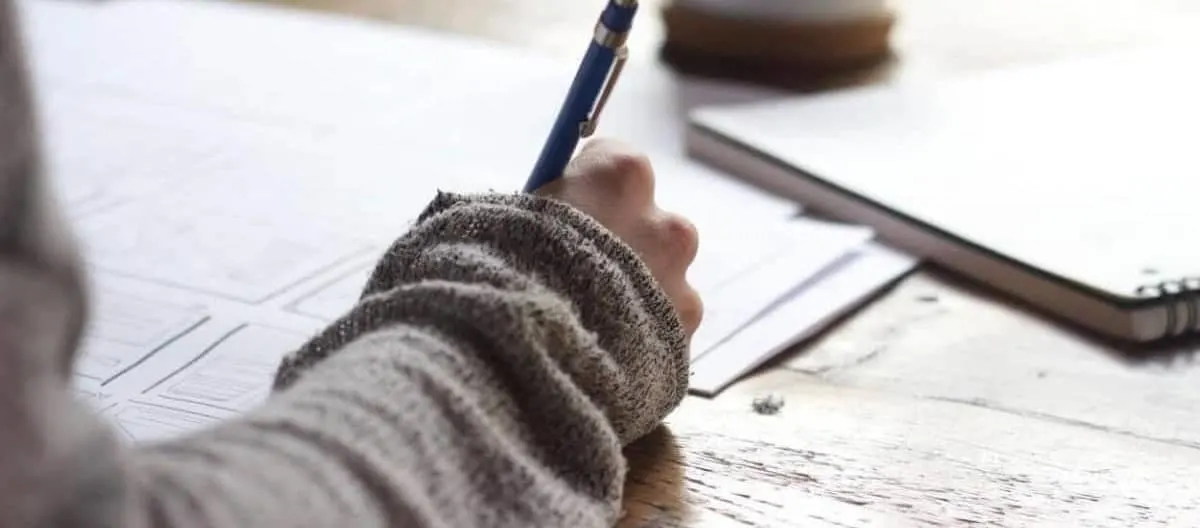
Side Effects of Caffeine
While there may be positive effects caffeine can offer you, consuming too much can damage your health.
It’s always best to consume the right amount of caffeine to ensure good effects. However, if you don’t, unwanted effects may occur on your body and these may include the following:
- Restlessness
- Shakiness
- Insomnia
- Headaches
- Dizziness
- Rapid Hearth Rhythm
- Dehydration
- Anxiety
- Dependency
- Addiction
Only consume what’s needed for your body to experience the best results out of the caffeine in your energy drink.
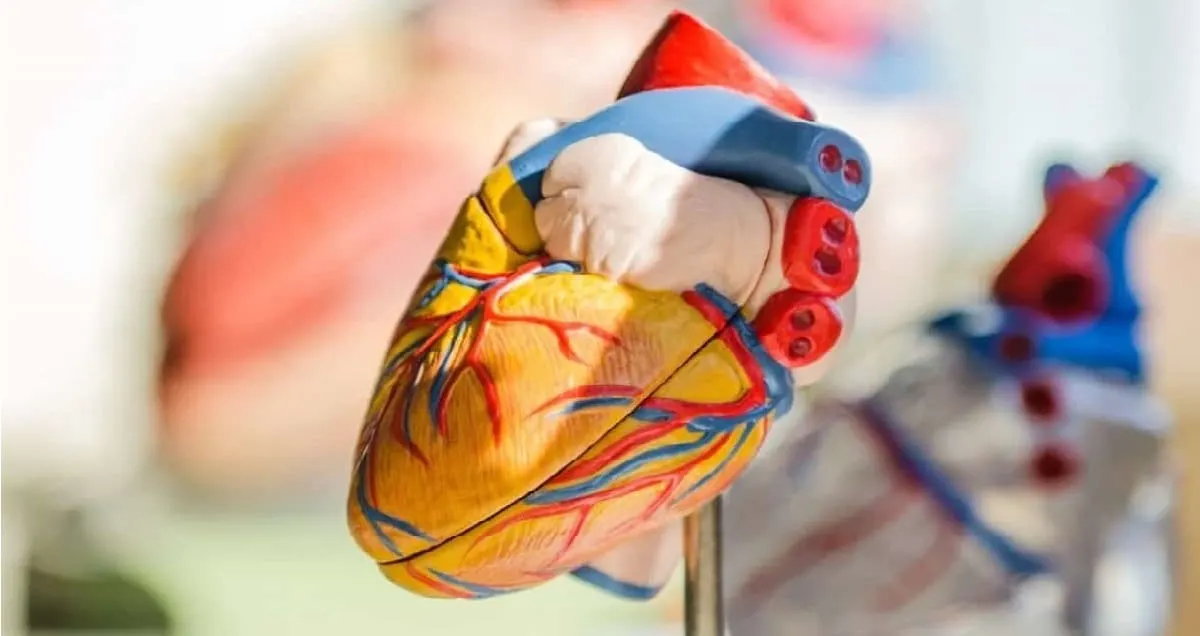
How Much Caffeine Is In An Energy Drink?
Like what was mentioned in the beginning, energy drinks usually contain 70-240mg in a sixteen fluid ounce can while energy shots would have 113-200mg.
Some energy drinks and shots would exceed those marks, and it’s best to take note of the following drinks if you don’t want to consume more than 70-240mg:
| Energy Drink/Shot | Amount Per Serving | Caffeine Content |
| Adrenaline Shoc | 16fl oz. | 300mg |
| Bang | 16fl oz. | 300mg |
| 5-Hour Energy Extra Strength | 1.9fl oz. | 230mg |
Listed above are only a few of the most caffeinated energy drinks out there.
If you want to know the caffeine content in your drink, you can always check the back of the product’s packaging, the site, or ask the manufacturers themselves to be very sure.

Who Can’t Drink Caffeine?
Despite knowing that caffeine is safe to drink, there are a few who are exempted from it.
For some people, caffeine may take effect in a very dangerous matter. If you have the following symptoms on this list, I suggest you get yourself checked first with a medical professional before consuming caffeine:
- Irritable Bowel Syndrome
- Glaucoma
- Overactive Bladder
- Heart Conditions (e.g. Arrhythmias)
- Sleeping Disorders
- Severe Anxiety
- Panic Attacks
- Stomach Problems (e.g. Diarrhea)
- Epilepcy
- Gastroesophageal Reflux (GERD)
Apart from this, if you’re pregnant or you breastfeed, it’s best to avoid caffeine in order to avoid the side effects mentioned earlier. Children under 12 are also not advised to drink caffeine.

What are the caffeine contents of popular energy drinks?
The caffeine content of popular energy drinks range from 70 to 200g of caffeine. However, some energy drinks contain as much as 500 milligrams of caffeine per serving. For comparison, an 8-ounce cup of coffee typically contains between 70 and 140 milligrams of caffeine, depending on how it is brewed.
It’s important to note that the actual caffeine content of an energy drink can be difficult to determine, as manufacturers are not required to list the exact amount on the label. In addition, some energy drinks contain other stimulants which can enhance the effects of caffeine.
How much caffeine is too much in an energy drink?
More than your caffeine thresh hold is too much caffeine in an energy drink. Consuming too much caffeine can lead to adverse health effects, such as restlessness, anxiety, and insomnia. The amount of caffeine that is considered safe varies depending on a person’s age, weight, and overall health.
Energy drinks can contain anywhere from 50 mg to over 300 mg of caffeine per serving. It is important to monitor your caffeine intake and avoid consuming too many energy drinks in a short period of time. Consuming more than 200 mg of caffeine in a single serving usually leads to adverse effects.
What is the limit of caffeine in energy drinks?
The caffeine limit in energy drinks varies by region and country. In the U.S., the FDA caps caffeine content at 71 milligrams per 12-ounce beverage, though exceptions exist for dietary supplements. In Europe, the EFSA suggests a maximum daily intake of 200 milligrams for adults.
However, these limits might not consider individual sensitivities or health conditions. Monitoring overall caffeine intake from various sources, considering age and health status, and consulting healthcare professionals helps ensure responsible consumption and mitigates potential adverse effects of excessive caffeine consumption.
How energy drinks affect the body?
Energy drinks impact the body due to their caffeine, sugar, and ingredient content. Caffeine stimulates the central nervous system, temporarily enhancing alertness and reducing fatigue. Sugar provides a quick energy boost but can lead to energy crashes.
Other ingredients like amino acids, vitamins, and herbal extracts might influence metabolism and mental focus. However, excessive caffeine intake can result in side effects like increased heart rate, jitteriness, and sleep disturbances. Understanding labels, moderation, and consulting healthcare professionals are crucial for responsible energy drink use.
To Conclude
Caffeine is one of the major ingredients used in making energy drinks. It’s a stimulant that gives you the energy boost and alertness your body needs.
Different energy drinks would source caffeine in natural ingredients like guarana seeds and tea leaves, which have more caffeine than coffee beans.
Usually, these beverages would contain 70-240mg of caffeine in one serving. However, some brands would exceed that as well.
On top of this, caffeine is beneficial for different reasons other than energy boosts. Although once exceeded the needed amount, side effects will occur on your body.
All in all, drink the amount of caffeine your body needs. Always look at the back of the beverage to see the caffeine content.
I don’t discourage you to consume any energy drinks, however, always be mindful of what you drink in order to get the best results.
